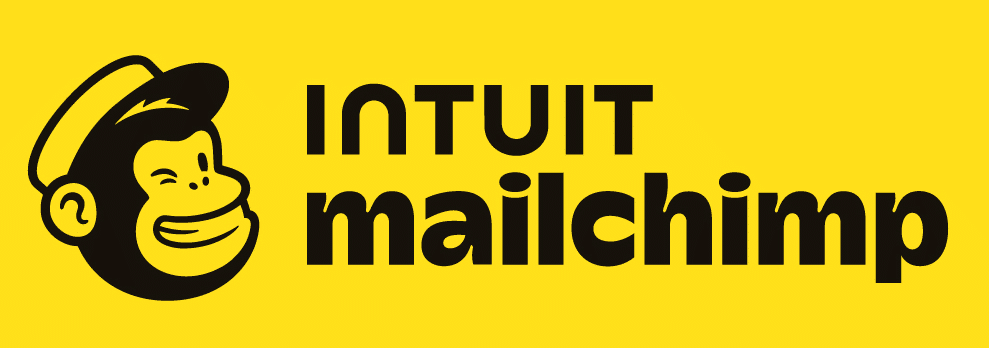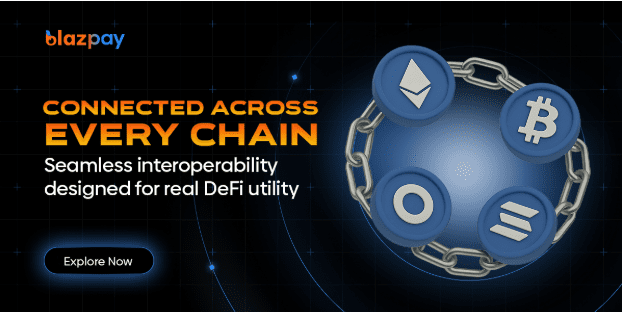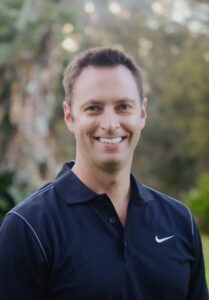Episode #487: Dr. Gio Valiante on Peak Performance: From Tiger Woods to Steve Cohen
![]()
![]()
![]()
![]()
Guest: Dr. Gio Valiante is regarded as one of the most successful performance coaches in the world. He’s currently the Head Performance Coach for the Buffalo Bills and works with some of the top golfers on the PGA Tour. He was previously the Head Performance Coach for Point72 and Steve Cohen.
Date Recorded: 6/14/2023 | Run-Time: 58:04
Summary: In today’s episode, Dr. Gio starts by sharing the five ways to win on the field or in the market. Then he shares the parallels of top performers in both athletics and investing. He walks through ways to help handle failure, navigate fear, and detach yourself from your results. This is truly a masterclass on what peak performance looks like, so be sure to share this episode with a friend. And if you enjoy this episode, check out the link in the show notes for Dr. Gio’s first appearance on the podcast.
Sponsor: Farmland LP is one of the largest investment funds in the US focused on converting chemical-based conventional farmland to organic, sustainably-managed farmland using a value-add commercial real estate strategy in the agriculture sector. Since 2009, they have built a 15,000-acre portfolio representing over $200M in AUM.
Comments or suggestions? Interested in sponsoring an episode? Email us [email protected]
Links from the Episode:
Transcript:
Welcome Message:
Welcome to The Meb Faber Show, where the focus is on helping you grow and preserve your wealth. Join us as we discuss the craft of investing and uncover new and profitable ideas, all to help you grow wealthier and wiser. Better investing starts here.
Disclaimer:
Meb Faber is the co-founder and chief investment officer at Cambria Investment Management. Due to industry regulations, he will not discuss any of Cambria’s funds on this podcast. All opinions expressed by podcast participants are solely their own opinions and do not reflect the opinion of Cambria Investment Management or its affiliates. For more information, visit cambriainvestments.com.
Sponsor Message:
Are you looking to invest in Farmland? Farmland LP is one of the largest investment funds in the US focusing on converting conventional farmland to sustainable organic land. They have a portfolio of more than 16,000 organic and sustainably farmed acres, and their goal is simple, to produce attractive returns for investors while benefiting the environment. Since 2009, Farmland LP has combined decades of farming experience with modern technologies, seeking to generate competitive risk-adjusted investment returns while supporting soil health, biodiversity, and water quality on every acre. And Farmland LP adheres to certified organic standards, giving investors’ confidence in their sustainable investing goals.
In today’s world of high inflation, volatile markets, and uncertainty, consider joining investors including large institutional investors like Bill Gates and other family offices, and add Farmland to your investing portfolio. To learn more about Farmland LP’s latest offering, click on the farmlandlp.com link on my podcast show notes or email [email protected] and tell them you heard about it on The Meb Faber Show. Take this opportunity to invest in a sustainable future.
Meb:
What’s up everybody? We got a fun episode today. Our returning guest is Dr. Gio Valiante, who is regarded as one of the most successful performance coaches in the world. He’s currently the head performance coach for the Buffalo Bills and works with some of the top golfers and investors in the world. He was previously the head performance coach for Point72 and Steve Cohen. Today’s episode, Dr. Gio starts by sharing the five ways to win on the field or in the market. Then he shares the parallels of top performers in both athletics and investing. He walks through ways to help handle failure, navigate fear, detach yourself from your results. This is truly a masterclass on what peak performance looks like, so be sure to share this episode with a friend. And if you enjoyed the episode, check out the link in the show notes for Dr. Gio’s First appearance on the podcast. Please enjoy this episode with Dr. Gio Valiante.
Meb:
Gio, welcome back to the show.
Gio:
Thank you, Meb. I’m glad to be back.
Meb:
Where do we find you today?
Gio:
Today, I am in St. Petersburg Beach, Florida.
Meb:
You look like you’re ready for summer, man, growing a beard. What’s the story?
Gio:
Yeah. I haven’t shaved all week and we’ll just keep it rolling.
Meb:
Well, you’d be right at home here in our Southern California lifestyle and company. We went surfing over the holidays, and my wife, she’s not a cold water surfer. She doesn’t surf in Los Angeles. But in Costa Rica, she’s certainly happy to surf. But she took a board to the face. She’s like, “These stitches…” I was like, “What?” Costa Rica stitches maybe, but not LA stitches. She was fine. But the takeaway, she now snores incessantly. I don’t know if it’s a deviated septum or what, but ever since, hasn’t surfed either since. We also have surf camp coming up here in LA this summer, so I’m excited about it.
But last time we had you on, we had a lot of fun. We talked a lot about sports. We got the open here in LA this week at LACC, which I may drag my six-year-old out too. But today, you’ve spent probably a good part of your career talking a lot about our world and thinking about psychology and the parallels between sports and investing. And so I figured maybe we would spend a little more time there today. Why don’t I hand you the mic and start to what your thoughts are since we last had you on?
Gio:
Well, it’s interesting. And I’m just pulling this up right now. One of the things that think about having transitioned from golf to the hedge fund world when Steve Cohen pulled me out of golf and it was 2014. And I was ready to step away from golf a little bit anyway just because all the travel on the PGA Tour and it was a bit of a grind. So timing was great. And when you have a framework to work with athletes and then you transition into working with investors, you’re applying a type of psychology. But just simple pattern recognition starts to show up and you start comping people.
And so one of the things I would think about in golf, I’ve got 50 wins on the PGA Tour with a variety of different golfers, but when you look at the profile of the golfers that I coach, they’re all really different. And so the way that I would look at a golfer and evaluate a golfer, I go, “How do we get this guy to win?” I think about, for example, there’s five ways to win in golf. And there’s five ways to win, for example, I think in the hedge fund world where I spend a lot of time. So think of it this way, or I think of this way.
Number one is talent. In golf, I think of Rory McIlroy. He’s got the same golf swing now that he had when he was six years old. It’s a very natural golf swing. It’s arguably some people are saying it’s the best golf swing in the history of the game. In fact, Tiger Woods last week when he was coaching his son, Charlie, think of this. Think of how enormous this statement is. Tiger Woods said to his son, “Don’t copy my swing. Copy Rory’s swing.” This Tiger Woods, arguably has built the best golf swing of all time, looks at Rory McIlroy’s swing and said, “That’s the swing I want my son to copy.”
And so Rory McIlroy’s the most talented golfer of his generation. In the comp, in financial markets, are there are people who are just smarter, just natural investors. They have an uncanny ability. Steve Cohen’s made money for 45 straight years, and everyone who’s ever sat next to Steve on the row tells the same story. I was talking to a guy last week at a different firm who worked with Steve 20 years ago, and everyone tells the same story. You watch Steve trade and it’s just a remarkable thing to watch. He’s just got this knack and pattern recognition. And so ability matters. And so in golf, it’s talent, proprioperception, fine motor skills, a combination of things that aggregate into what we just call talent.
And in the markets, it’s intelligence. But it’s more than intelligence. Because what is intelligence? Is it memory? Is it pattern recognition? Is it self-awareness? There’s a lot of things that go into this concept of intelligence. And so it begs the question, if you don’t have it, if you’re not the smartest or the most talented, well, how do you win? Well, the next level down is work ethic. I’m not more talented than Rory McIlroy, then I’m going to have to outwork him. I don’t have what Steve Cohen has. So the way that investors compensate, it’s like, “I’m just going to work harder. I’m going to outwork everyone else.” And that’s the way to close the gap between the smartest and most talented people.
Well, there’s a point of diminishing returns on work because at a certain point, sleep deprivation compromise your ability to make good decisions. So what happens, what you see on the PGA Tour and in the markets is if you look at the driving range on the PGA Tour, everyone has a resume like, “Oh, that guy was college national champion. That guy’s a US amateur champion. That guy was the media fave.” Every one of these guys is amazing, was the best golfer in high school, the best golfer in college. And they all have this puritanical work ethic.
And it’s the same on Wall Street. Wall Street, everyone’s got a resume. Everyone went to University of Virginia or Ivy League, went to Wharton, went to Penn. They’re all smart and they all work hard. And so it begs the question, if you take that sample, so all super talented people who work really, really hard, and you lay them on a distribution, well then, where’s the advantage? Everyone’s smart on Wall Street and everyone works really, really hard. So you’ve got talent, you’ve got work ethic. Well, the third way to compete and to try to win, and this is how I would evaluate golfers, is differentiation. You just have a differentiated perspective. You see the game differently.
You use college football coaches as an example. If you look at three of the best coaches of all time, Steve Spurrier, Nick Saban, and Urban Meyer. Steve Spurrier sees football as a game of space. And so he would coach his quarterback and receivers just throw the ball into space and let the receiver go to that space. So he sees the game a little bit differently. By his own admission, Steve Spurrier was not a hard worker. He didn’t want to stay up all night watching film, but everyone also says he’s also a genius. So differentiation.
Nick Saban does not see football as a game of space. He sees it as essentially a talent. It’s recruiting and a game of talent. So he’s got the deepest files on every player in the country starting when they’re 12 years old. And so he just recruits the best people. One sees Steve Spurrier sees as a game of space, Nick Saban sees it as a game of just talent, competition for talent. And Urban Meyer sees this as a game of speed. It’s just a race. Urban Meyer would recruit players, you have to run. Whether you’re an offensive lineman, defensive lineman, linebacker, everyone has to be a runner. And he just recruits speed. Three different ways, three different philosophies of coaching college football, all three super successful, national championships, SEC championships. So differentiated perspective can work. I look up at the night sky and I see the Big Dipper and Van Gogh saw Starry Night. We’re looking at the same thing but it’s a differentiated view of the same thing.
The ways to win are talent, work ethic, differentiation. Let’s say that those things are all marginalized. Everyone’s got that. So then what’s the next level way to get an advantage? Talk about be religious about process, discipline. In other words, if you’re not the smartest and you’re a hard worker but not the hardest worker and you’re a little bit differentiated but essentially you’re conventional, well, the way that I can win then is I’m going to be absolutely religious about process and discipline and routine. Wash, rinse, repeat every day because that’s going to minimize error. The four ways, and this is true. Again, this travels between golf and investing.
And then the fifth way is if you’re not great at any of those things, well, but you’re great with people. You’re a great evaluator of talent. You’re a great managers. Just you hire people to compensate for those. In other words, you hire the smartest differentiated figure and you just coach people to compensate for your weaknesses.
And so it’s been a remarkable journey to work at the highest level of golf and watch how those guys compete and where they find their advantages. And now 10 years working largely in the hedge fund and finance in general, largely in the hedge fund industry, when you start to see that the tail end of the curve looks the same across both sports. Mediocrity looks the same and excellence looks the same. It’s just remarkable that you can comp. There’s a particular portfolio manager. I won’t say his name, but he’s just one of the best investors I’ve ever met. But it’s natural. He has naturally good recall and he knows every company and every management team he’s ever invested in. It’s effortless for him. And everyone who’s worked with him says that about him. He’s just a born natural investigator. And that’s the equivalent comps to Rory McIlroy. And then you start going down the pecking order and you’re like, “Oh, there are parallels across sports.” And structurally when we talking about personality and profiling, it’s the same people.
One other note on that, I remember I was spending time with a guy named Jordan Spieth out in Texas, went out to Dallas, spent two days with Jordan Spieth. And he was working on a particular part of his game. And then I flew up to Buffalo, spent time with a guy named Sean McDermott, who’s the head coach of the Buffalo Bills. And from Buffalo, I flew to Westchester, spent time with Steve Cohen. So it was a three-day sequence of Jordan Spieth, Sean McDermott, Steve Cohen. And I’m on a walk with Steve around the building and I remember thinking, “This is the same conversation I just had.” This incredible football coach who’s turned around the Buffalo Bills, Coach of the Year, Jordan Spieth, generational talent golfer, Steve Cohen, legendary investor, they’re all working on the same kind of problems. Different domains, but it’s the same. And so at the tail end of the distribution, excellence has a bit of a profile.
Meb:
There’s a couple different ways we could go there from here. I was thinking as you were talking and we spent a lot of time thinking about the tails of a distribution. Once you’re out on that far end, and I don’t know, there’s 50 golfers, 100, that are usually competing at these tournaments and you’re getting into that final levels of mastery, what is the one that most of them of those struggle with?
Gio:
It’s built into the developmental trajectory of excellence. Success is never up into the right. The reality is the trajectory, if you do a deep dive into the history of sports and you think of Johnny Unitas and Joe Montana and Tom Brady and Kobe and Michael Jordan, people think that Jack Nicklaus, that these people never struggled, that they just showed up and won all the time. And it’s just not true. Kelly Slater, the surfer, Bode Miller, the slalom skier. And so what happens is in aggregate, these guys build this profile, this record, this body of work that stands the test of time, but the path to it is wrought with a lot of failure. And so therein lies the lesson.
One of the flaws of the human mind is it likes to think in binary terms, either/or. Confident or not confident, good or bad, success and failure. But what is known, and this travels across domains, is failure and success are not inversely related. They’re not binary. It’s not failure’s here and success is here, and the further away from failure and the closer you get to success. People like to think of it that way. In reality, failure is woven into the fabric of success.
I was working with this wakeboarder once, this kid named Phil Soven who was at the time the best wakeboarder in the world. And he said something really interesting to me. And same thing that David Duval said to me about snow skiing. One of the things that made Philip Soven the best wakeboarder in the world was that he never got injured when he fell. In other words, he knew how to fall. And that’s what you know about great skiers. Great skiers, everyone falls. But if you don’t know how to fall without getting injured, you’re not going to do it very long, particularly when you’re pushing the envelopes. You have to learn how.
One of the things that’s foundational for both investors and athletes and the conversations I have with a lot of these people is you have to learn how to fail. Because if you’re afraid to fail, all of a sudden you’re… It’s the psychological equivalent of the prevent defense in football. You’re playing to not lose because you’re afraid to fail, and that automatically puts a governor on how good you’ll ever be. In other words, if you’re spending your life trying to avoid failure, trying to not fail, again, the psychological equivalent of prevent defense in football, you’re never going to take the appropriate amount of risks and you’re never going to have psychological freedom.
Because what happens is one of the things we know about fear… Two things we know about fear. Number one, it’s universal. It’s one of the universalities of the human condition, unless you have some sort of brain structure that you don’t feel fear, which some people have that condition. But for most of the population, the brain has circuitry. It’s hardwired in. And so we talk about the markets being driven by fear and greed. It’s more fear than greed because fear is the most powerful of all emotions.
So fear is universal. We’re hardwired for it, but it also is distortive. It distorts our ability to see things accurately. In golf, I would hold the line and say, “Make fearless swings at precise targets.” That’s what fearless golf is. You’re making fearless swings at precise targets. And if you just hold that, and essentially what I would tell my golfers is this is not a horse race. It’s not one golfer versus the other. It’s a dark game. It’s you against the golf course, not against other golfers. Because the variability of other players you can’t control. So it’s just fearless swings and precise targets. What’s my target?
The equivalent in investing, and I’d love to hear what you think about this. An investor should always deploy capital proportional to the opportunity in the market in the moment. So if you just write that line, “Deploy capital exactly proportional to the opportunity in the market in the moment.” Now, why is that an absolute statement in my opinion? Because if you think of all the drivers of the reasons why people invest or why they deploy capital into the markets, more often than not, it has nothing to do with the opportunity. Say, “Hey, I’m in a draw. I need to make money,” or try to make money the same way you lost in a particular company, or your analyst is pressuring you to put his ideas in the books.
The level of irrationality, even for sophisticated investors, so what I’m always doing is auditing my guys’ thinking and say, “Okay, are you deploying capital exactly at a poor proportion to the opportunity you see in the market?” For example, right now, low vol. There’s not a lot of volatility in the market. The mix is low. And so a lot of guys are flat. And so now is the time where people start trying to force P&L. But if there’s no money to be made and you start imposing your needs on the market, well, that’s when big losses come.
And so going back to the idea of fear, fear distorts our ability to see opportunities as they are. What it does is we see it increases threat level, so we see danger. Whereas when you’re confident, you see the market as a place of opportunity, place of abundance. You can look at that exact same market and see it as a place of threat and danger. And that’s what fear does. So we’d come in off the risk curve. We start pitching consensus ideas. We start overtrading, and this cascading effect. So you asked, the initial question was what do you see at the tail end of the curve? You see people who know what to do with failure, who know how to manage fear, and who have a process in place so they don’t make decisions that are governed by fear.
Meb:
Man, that’s so great. There’s two parts of that that I think we could spend a little time on or expand into. I’m not sure which one I want to go to. We’ll start with this concept of fear and failure. And as I think about it, when you think about the actual failure part, you miss a shot, you make a bad trade. Whatever it may be, the fear of really what’s associated with it is what people struggle with is that, “I’m going to be embarrassed. I’m going to feel shame. People are going to think that I’m not the greatest anymore. I’m going to not make as much money so my spouse or potential mates are not going to be as attracted to me. My sense of self-worth is wrapped up in this job. I may get fired or traded,” yada, yada.
We did a fun chart the other day where early in my career, in the social media world when you put yourself out there, of course, and investing, but the same is true of sports, obviously you got to deal with the haters and the terrible comments. And it used to bother me. And I have a lot of friends where I see them posting on Twitter, “Oh my God, this. Can’t believe this person said this. This is so hurtful. I don’t want to be on Twitter anymore.” And the thing that we tell people, it’s like the athlete who puts the article, newspaper article on their locker and the ones that use it as motivation, what we tell people to do on the investing side is say, and this is for the public persona, but you could do it two ways with the trades.
One is when you get the haters, just take it, copy it, and put it into a Google doc and it file it away. And so we’ve been doing this for 10 years now. And in the early days, it’s like I felt the very real like, “Oh, I’m embarrassed. Someone thinks I’m a terrible investor,” on and on. Then we started throwing them in there and some of them were pretty hateful and mean and spirited and awful and on and on. Now, looking back on them, often I chuckle and smile. But also, so we put up a tweet the other day that had all these comments over the last 10 years because we just had a 10-year anniversary, and then our progress over the years. And something about taking it and putting it into the document, the front page thing on the newspaper, it places it in a different mental compartment for me. And I don’t know if that’s true for someone else. It takes it from being a personal attack that’s really hurtful to something where it’s more motivational.
And we talked on this briefly last time, but this concept of failing in our world is my favorite quote being, “Every trade makes you richer or wiser, but never both.” So the same concept of not wanting to learn from the failures or not wanting to fail because it’s a painful process, but rather actually learn from them, realize they’re inevitable.
Gio:
Yeah, there’s a bit of genius in what you just said. Psychology has done a lot of research around this. And when you start… People talk about fear. I remember when I first started doing psychological studies about golf and I was interviewing all these PGA Tour golfers, structured interviews, same 12 questions to every guy. And it was amazing to me how frequently fear came up because at the time, no one was talking about fear and golf. And it’s fear. This isn’t boxing. You’re not going to get punched by Mike Tyson. It’s not football. You’re not going to get tackled by Lawrence Taylor. It’s like, “What are you afraid of? It’s golf.”
So when I wrote that first book, it was called Fearless Golf, I wrote that book for a very small audience. The book was probably supposed to sell couple thousand copies. It was not meant to be a big deal. It ended up in seven languages all over the world, which surprised everyone, the publisher, me. But what happened was what struck people was the idea that of fear, so it was called Fearless Golf, and people started seeing themselves in it. But one of the fundamental questions I asked that led to the books, what are you afraid of? If you’re afraid, physical? Nothing physical’s going to happen to you. Probably not going to get hit by lightning. It was fear of being judged by other people. It’s fear of embarrassment, essentially. Humiliation. It’s exactly what you talked to or spoke to.
And what happens is, so humiliation, just when you just think of the word humiliation is we talk about psychological pain. The only thing more pain than feeling humiliated is grieving the death of a loved one. Grief. Grief is a very, very biologically governed, powerful emotion. It takes over. Other than that, it’s humiliation. It’s embarrassment. And what happens is there’s a, it’s like a switch in the brain. I want you to think of it almost like pulling a fire alarm, is that when people feel the threat of embarrassment like, “If I fail at this thing, it’s humiliating.” What happens in the brain is this switch trick that flips. And it starts, just like you pull a fire alarm, a sequence of events starts to happen in the brain. So like a fire alarm, the electricity gets cut off, an alarm sends to the fire department, sprinklers come on. There’s a series of events.
And the brain, what happens is when the threat of humiliation comes into play, your body starts getting flooded with these stress hormones, cortisol, epinephrine, norepinephrine. Perception shifts, like your pupils dilate. So the golfer who’s playing scared because he is embarrassed, all of a sudden the fairway starts to narrow, the hole looks smaller. So the basketball player, the hoop looks smaller. To the investor, you don’t see any opportunities. All you see is danger of it. Perception. So there’s a chemical change in the body. Perception shifts. You start seeing threat instead of opportunity. And just the sequel, the butterflies in the stomach. And it’s like a throw switch in the brain.
So the fact that you elevated that into this dialogue that you’re having conversations about what to do with people’s judgments of you and you have a way to manage it. Because in the absence of having a mental toolbox, which you have for how to deal with the potential humiliation or judgment of others, you can’t be good at anything. You can’t be good at literally anything in life if you walk going through life and your driving concern is, “What are people going to think of me if I fail?” You have to have a mechanism or a method for dealing with that.
And the one thing I’ll say about that in chapter two of Fearless Golf, the first book I wrote, there’s this really beautiful area of psychology. It’s called achievement goals. And it’s not like goal-setting. Goal-setting answers the question, “What do I want to achieve?” Achievement goals actually ask the question, “Why do you do what you do? And why are you an investor? Why are you a golfer? Why are you a school teacher? Why do you do what you do?” And what the research shows is if you ask thousands of people this question, it tends to cluster into two camps.
The first camp is called a mastery orientation. I do this every day because I want to master my craft. It’s like I’m intrinsically motivated. I love learning. I love the challenge. I love everything about skiing or surfing or whatever. I’m in it. I’m in for these reasons. The other camp is called an ego orientation. And when you’re driven by an ego orientation, the motivation, the reason why you do what you do has nothing to do with the craft or the task itself. It’s you’re doing it for image management to impress other people, to beat other people. It’s not about golf. It’s about showing people how good I am at golf.
I remember I had a Hollywood director come spend a day with me one time. I’ll never forget this. He flew to Florida, a big deal out in Hollywood. But he loved golf. Like a lot of people, really fall in love with golf. It captivates them and they get addicted to it. He said, “The problem is I could be with all these movie stars and dah, dah, dah, dah, and I’m never self-conscious.” He goes, “But this game is in my head. I can’t play.”
And so we went off to golfing. We spent a couple of hours. Went off to the golf course, and he takes a ball out of his bag and puts it on the tee. I go, “What kind of ball is that? It doesn’t look like a Titleist. Doesn’t look like a Bridget.” He goes, “Oh no.” I go, “What does it say on it?” He goes, “Oh.” He goes, “It’s what I write on all my balls.” He goes, “It’s FIGJAM.” I go, “What’s FIGJAM?” “Fuck, I’m good. Just ask me.” And I thought, “Oh, I think I know what your problem is. We don’t have to even play golf. Let’s go back to the office.”
And I was a professor at the time at Rollins College. He was so clearly driven by an ego orientation. He just wanted people to recognize that he’s good. And when you start playing golf or doing it because you want the accolades and praise and rec from other people, well that by definition brings embarrassment into play. And you can’t do these things if you’re with fear of humiliation. So what led to that was the reason why he was just playing for the wrong reasons. Investors who go into investing just to make a lot of money, you’re never going to be a great investor. You better love the game. You better love draws. You better love solving hard problems. You better love learning about yourself. It can’t be only about the money. You’ll never be great at it.
Meb:
So for someone like this golfer, let’s say, or an investor, let’s say they recognize this problem. Say, “Look, I’m not handling failure well. I realize I may have this ego attachment, but I really want to work to get to a mastery mindset, to get to where I’m making this trade. I’m getting ready to stand over this ball to where I realize that I have this mindset that I want to change.” Where do those people begin? Where does FIGJAM go? What’s the right acronym for that guy to get into his head? But what’s the approach next where you say, “Okay, we got to shift?” Is it possible to shift from-
Gio:
Yeah.
Meb:
… “I am an ego guy. I want to focus on mastery. How do I then make that transition?” Because then you’ve made the first step, which is, “All right, I acknowledge this. Get me out of this rut.”
Gio:
Yeah. No, you’re using exactly the right language. It’s a psychological shift. You know what’s interesting is most of the time, people get into it for the right reasons. People get into investing, they get into golf, into surfing for the right reasons, because they love it. It’s great game and investing is fun and markets are fascinating. But what happens is once… So you get into it for the right reasons, which makes you pretty good at it. Then you get good at it and you start getting recognition. And that’s when the shift happens, is when you start getting praised.
I’ll give a quick example. I was at a college golf tournament once outside of Atlanta from Georgia, and there’s this young golfer at this club and I was at the snack bar getting some food. And this woman comes over to this kid who’s about maybe call him 12 years old. And she said, “Oh, Billy, read about you in the newspaper. You’re doing so well. You’re making everyone at the club so proud. We talk about you all the time.” And he was very polite young when he said, “Oh, well, thank you. Thank you so much.” And he had ordered a hotdog and she said, “Oh, no, no, no. I’ll get that, dear. Put that on my tab. Put that on my number.”
And you can almost see this thing happening in the kid’s brain where he got great at golf because he is out there playing until sunset every day because he loves it. But all of a sudden now it’s like, “Wait, you’re saying if I play good golf, I get free hotdogs? If I play good golf, people like me more?” And this is what happens to college athletes and especially professional athletes. And the equivalent in investors is you’re great at investing, you’re into it, you start making a lot of money. Well, then you buy a nice house. Well, then you buy a nice car, then you buy a house in the Hamptons. And all of a sudden, you build this life and it puts pressure on the purity of the act of making good decisions because now you got to pay for a life. So now it’s not really about the investing. It’s not about the decision-making. It’s not about getting better at your craft. It’s about just you’re imposing your needs on the market.
So the psychological shift that happens, it’s really common, but it’s also possible to shift back. You coach people. You teach them what mastery is. You teach them what ego is, and then how to react. Because when you’re mastery-oriented, you don’t feel embarrassment when you’re doing something for love of the craft. Because it’s not about other people, it’s not about their approval.
It’s Howard Roark in Ayn Rand, standing over the granite quarter. It’s like, “I’m not an architect. I don’t build buildings. I don’t care if you like them or not. There’s nothing to do with you.” I remember the character. I think it was Ellsworth Toohey. He said to Howard Roark in the book, “Tell me the truth. What do you think of me?” And Roark’s answer was great. “I don’t. I don’t think of you because it’s not about you. It’s about the building. It’s about the craft. It’s about the art of the craft.”
Meb:
One of the things we hear a lot in my world, and I imagine at some point there’s just some people that will never care. They’re just like you may have been in it for this fun and mastery, but then you got attached to status games and all these other things and they’re just too addicted to it. They’ll never go back. Did you see that happen? Is that you actually look like you don’t seem to really want to change, you don’t seem to really want this path. It’s unsolvable. Are there just people like that? Or is there no one? No one Gio can’t save in this?
Gio:
No, no, no. And that’s what’s interesting is if you’re ego-oriented, that can work. But there’s one criteria. You have to be arrogant. And that’s why athletes sometimes have entourages because they lose their confidence. If you’re ego-oriented and you’re doing it for the accolades and the praise, well what you’re going to do is you’re going to surround yourself with people who are going to keep giving you that praise. And so you could be ego-oriented, but you better never get a ding in your confidence because once that happens, you fall apart.
So yeah, some people, confidence is two different things. It’s a belief but it’s also a personality trait. So, one of the variable, one of them is a constant. If you talk to parents who have twins, they’ll say, “Yeah, that one’s been confident the day he was born. It’s just it’s built into who he is.” And so if it’s a trait thing where it’s literally woven into the fabric of who you are and you’re always confident, that can work. But that tends to lean in directionally toward arrogance, which you see in a lot of athletes. Connor McGregor in the ’90s, all these athletes. But the reason that I tend to forgive arrogance, I don’t forgive it of my friends or people in my circle, but I forgive it of athletes because confidence is so important for what they do for a living. They have to protect it at all costs. And sometimes that means they have to be boastful and talk themselves up a lot.
Meb:
I wonder what errors people get into. They say, “Okay, I want to adopt this mastery.” In my world, I think we talked about this a little last time, but in sports, we’re trying to disassociate between, “Here’s my process,” and, “I’ve done the best repair. This is the way I’m going about it.” And the outcome is variable, trying not to associate with the potential outcome, what happens. And it’s funny because I actually hear people a lot in my world who I think meaningfully want to do. They have, their intention is to do that, but they can’t help themselves. And it still is hard. So good example, everyone says, “All right, I’m evaluating funder strategy. I’m all about process, not performance.” And I say, “Okay.” Often I’m like, “Well, BS.” I know you’ve already looked at the chart, you already know the performance, but let’s say you did this process.
And some, I think, really do have that intention and then they’ll buy an investment. And this is a lot of professional advisors out there. I don’t want to shame you guys, but I got 10 years of experience here on chatting with you all. And then I say, “How many of you all actually use that process, not performance on the sell?” So they maybe do it on the buy and then the outcome which they really don’t control, which is the performance is the only reason they sell. Is there any suggestions you have to people where they’re in that next step of like, “All right, I’m in this process mentality, this mastery. I want to practice. I want to disassociate with the outcome. I can’t help myself though.” What do you say to those people?
Gio:
So psychology differentiates different kinds of knowledge, different kinds of ways of learning. And so there’s what’s called conceptual knowledge, which is the know something, and procedural knowledge, how to do something. Knowing and doing, and then there’s that bridge. And to your point, a lot of people live here, but their behavior is not an expression of their beliefs. A lot of times, people behave in a manner that’s very different than their core beliefs. Very common, in fact. And the philosopher John Dewey one time wrote, he wrote a book called How We Think. I think it was called How We Think. And in that book he said, this is brilliant by the way. He said, “We don’t think our way into a pattern of living. We live our way into a pattern of thought.”
Let me translate that. What that in common parlance means is a lot of times people think that the way to get better at something or the way to change your life or change your how is it starts in your brain and then you make the decision here and then your life changes. As a man thinking, that the way to excellence, the way to get somebody to win, change their mind. Once they see it, say, aha moment, everything changes. More often than not, at least half the time, we don’t think our way into a behavioral change. We behave our way into a mindset shift.
And so that’s a long way of saying the Nike slogan, “Just do it.” What I’ll often do, and this is not my invention, the behavioral psychology laid the groundwork for this, is if you could change a person’s behavior, you could change their mind. And so I remember I had a golfer once who was really underperforming relative to his talent. So I went and stayed with him for a few days in his house and I was just watching what he does in a given day. In a given off week, he’ll wake up at 9:00, shuffle down the hallway, have breakfast, gets to the driving range, right out his back door at 11:00 AM, practice, da da. And I thought, “Okay, so let’s change what he does, change just what he’s doing.”
So while I was there, we woke up at 8:00 AM. And the first thing he did was not put on his slippers. He put on his sneakers. And instead of walking past his gym on the way to the breakfast table, he went into the gym. And all of a sudden, just by changing that one behavior, the way the dominoes fell in his whole day shifted and then all of a sudden practice was better. And then we don’t think our way into a pattern of living. We live our way into a pattern of thought. I changed what he was just doing. And all of a sudden, confidence flows from there, belief in himself, performance. He started having two great years on the PGA Tour after that.
And so the reality is there’s no substitute for doing the right thing. But what people don’t understand, Jordan Peterson talks about this really, really eloquently, and this is in the article I recommend in the last time we chatted called The Mundanity of Excellence. So huge performances, huge results, making a lot of money, winning UP Opens in golf, winning NBA championships, very seldom do those things happen from this epiphany, from this massive shift in your life-changing thing. More often, what happens is you make one small change repeated. So at the end, if you make one small change in what you do, we do it every day. You’re not making 365 changes. You’re making one change 365 times. And then what you start seeing is these incredible wins and these trophies and all these great successes. The podium looks a certain way, but the process was just mundane. It was just your small changes repeated, small changes repeated. Change one or two things in your life every day. And you start doing that over the course of the year and all of a sudden it shows up on the scoreboard.
And so what I would encourage people, and this is what Jordan Peterson says quite a bit, pick one thing that’s doable. Don’t overreach because you’re probably not going to wake up at 5:00 AM every day and do a cold plunge, and to be realistic. I know you want to, but you’re probably not going to. Pick one thing that you know can do and do that every day because what happens, you start getting addicted to the feeling of, “Oh, I feel better about myself.” Okay, then you stack a second thing on a small thing. Well, that repeated. And all of a sudden, the process of your life looks different. And in aggregate, that’s what shows up on the scoreboard.
Meb:
Yeah, I like that. The amount of time, and I’m a terrible surfer, but the amount of times where I’ve surfed in the morning and have regretted it may be zero. There’s probably a couple of times where you go out there and it’s like, well, worst case it was like a cold punch. I just went for a swim and there was no waves and whatever. But I probably near 100% of the time have felt better. But the amount of times when I wake up and I’m having coffee and I’m like, “Looks a little cloudy today,” or maybe I’ll just check some emails. It’s funny, even knowing it, the disassociation between the habit and putting into practice or putting it into action. Look, we all know this with diet and exercise and so many things where we already know the answers. Just getting it into practice.
Gio:
And by the way, Kobe talks about that or spoke about that in The Mamba Mentality.
Meb:
You had a great article about Kobe, by the way, that we’ll post in the show note links, listeners. He’s someone that embodies a lot of what we talked about today.
Gio:
Yeah. But the thing he did is he would never negotiate with himself. I fall into the same trap you do. It’s like, “Nah, not today.” That we start having these. What makes Kobe is he didn’t negotiate with him. It was non-negotiable. He wrote a contract, “Here’s what I’m going to do every day.” There was no negotiating. That’s the difference maker right there. I’m not letting myself off the hook. It’s accountability.
Meb:
That’s an interesting mindset because there was a recent tweet from a football player. And I may get his name wrong, Russell Okung. It’s a picture of him when he was a lineman. It says, “The journey from being a 330 pound NFL football player to 100 pounds lighter has been unreal. A new chapter, a new me.” And it’s the number one question and he posts photos of is, “How do you do it?” And he did a 40-day water fast. Amazing. And listeners, by the way, this is a fun trivia question because everyone that I’ve asked gets this exceptionally wrong. When you ask, “What’s the world record for fast?” Most people like my wife and child, they’re like, “Seven days?” And it’s like, “Just because you’ve had food every day for your life doesn’t mean that it’s…” And then they’re like, “Okay, fine. 30?” And I was like, “The world record’s it’s a year where somebody was huge and ended up losing 400 pounds.” But anyway, check out the Guinness Record. We’ll link it in the show notes. People don’t believe me. So listeners go look it up.
Anyway, Russell lost all this because he didn’t eat for a month. And people, it’s fun to read the comments because people were just like, “What? How’d you do it? This is crazy.” And he has some really thoughtful answers where he’s basically one of his quotes, he said, “What I wanted to accomplish was bigger than my appetite.” And so this mindset that you just talked about is not negotiating with yourself. Because how many of us have been on a run or you’re doing a marathon or race and you’re just thinking of reasons why you get to quit? Like, “How can I? What’s a good reason to opt out of this?” Maybe you all in this fast early because it’s not healthy, maybe all of a sudden it’s not. Anyway, but I think that mindset of not negotiating is smart. It’s probably harder. And practice going into it, but powerful concept.
Gio, where should we go next? You mentioned Kobe. Should we talk about Kobe in your article? Or what’s something we haven’t touched on you want to hit?
Gio:
I was thinking late recently, we talked about the markets being an expository mechanism, the idea being whatever your personal makeup as a person is going to be exposed. So if you’re overconfident, that gets exposed. If you’re underconfident, that gets exposed. If you’re risk-averse, that gets exposed. If you are prone to repeating the same mistake again and again and again, the markets will punish the same mistake again and again and again and again. If you lack self-awareness, whatever your weakness or flaws gets exposed.
And so the flip side of that is becoming a better investor can also be the path to becoming a better human being by Abraham Maslow’s definition of being a complete human being. Because you have to learn self-awareness. You have to learn to critique yourself. You have to learn intellectual honesty. I was thinking the other day of anyone who follows tennis, when you watch very long rallies, what the data suggests is most, I forget what defines a long rally in terms of the number of volleys back and forth, but they’re almost always lost on an unforced error. So two players are going back and forth and then bang, and all of a sudden the crowd is gasping, “Ah,” because it just keeps going. And who almost always loses the rallies? The person who capitulates, who panics, who tries to force something.
And what you often see with investors, same thing in a market, may not be taking money away. There may not be a lot of pain, but it’s just uncomfortable because you’re flat. And we’re through five months. We’re in June. I haven’t generated returns and treasuries are giving 5 or 6%. And so I’m afraid everyone’s going to take the money out of my fund and just put it all into treasuries. So all of a sudden, you start trying to force a win and you capitulate. And that’s why you see the same traits laterally across domains, whether it’s investing or sports.
And so one of the things I’m keeping a close eye on for this particular segment of the market where there just doesn’t seem to be a lot of volatility, a lot of opportunity, these are investors who have made a lot of money the last bunch of years, and all of a sudden you start seeing people. This reminds you of late 2017 going to 2018 where the VIX was just split then all of a sudden February 2018 happened. But this is a time like that. We start seeing the same patterns of behavior, people getting antsy, making mistakes. Just equivalent of a tennis player. So I’m just watching closely to see discipline, how many people are committing to their process, detaching from short term results, and just waiting a little bit and waiting as a skill.
Meb:
I wonder how hard if there’s any suggestions do you have on people detaching from results. Because it’s so easy when you’re playing poker. I was at this angel investing conference last week and sitting down at the poker table. And poker more than anything for me, investing I can detach from. And it doesn’t matter if I’m playing at the $1 table, the $10 table, the $100 table, on and on, you’d be playing for any amount of money. It’s just as painful for me at the $1 table. But playing there and sitting there and I’m looking at the cards and I had a terrible hand, whatever it was, two 7 off suit, and the flop comes and it’s two 7s or two 7s and a 2, whatever. And I was like, “Oh my god, I cannot believe I didn’t stay in that hand.” You should never stay in that hand.
And yet I’m feeling that regret and that outcome that where I was like, “Oh my God, I totally should have made the wrong decision because look, I would…” And then I can catch myself. And I’m like, “It’s so hard mentally.” Do you have any suggestions for people as far as this is so easy with traders too, the amount of times where it has this same impact where you attach to these outcomes so easily despite the process. As judgmental as I was earlier about people following performance after process, I feel like it’s hard.
Gio:
I love talking to you, man. Your insights are really fantastic. Every major religious tradition has a prayer component. So let’s just use Christianity just as an example. It’s got this idea of original sin. And so what happens is what? So you go, you say grace for before dinner and you’re practicing gratitude. “Thank you for the blessings of this meal.” In the absence of actively praying, what Christianity says is we tend to regress back to a state of being, which is the sinful life. And the idea of sin all it means, it’s actually an archery term. It means to miss the mark. So to sin in archery is to miss the target. To sin in life is to miss the point of life, to live in a particular way.
So the idea being why do we have to pray all the time? Why you go to church or temple or wherever we go to practice? In the absence of actively practicing your beliefs, you tend to fall back into bad habits and patterns. And that’s true of psychological attachment. In the absence of actively detaching from the things in your life that are constraining you, whether it’s fear or doubt or other people, in the absence of actively detaching from these things, you’re going to live in a psychological strain. You’re going to a very confined arena of what your total possibilities are. And so the active practice of detaching from these things has to happen at least once a week. Do that and what fills in that space is psychological freedom. And psychological freedom is the absence of fear. That’s how you see things accurately. That’s how you lean into moments. That’s how you take smart risks. That’s how you have courage.
Meb:
There was an NBA coach recently, and we’ll have to put it in the show note links because I can’t remember who it was, but they were on a podcast and talking about this detachment. And he said, “Maybe we should watch film and then have the clips end when the player shoots so we don’t see the result of the actual shot.” I was trying to think of a way like poker, like the training aid should be you play this hand, we’re not going to tell you if you won. Your bankroll is going to stay the same. And at the end, we’ll show you how. It’s obviously hard to do. And certainly with investing, it’s a similar thing. It’s like, you judge the outcome.
And it’s even harder in a lot of my world, the active traders like Cohen, it’s a much shorter, higher frequency. But many of the allocators in my world, there’s a great quote from Ken French where he’s like, “It’s crazy the inferences people draw from 1, 3, 5, 10 years on the allocation side, which makes it even harder because that’s playing out over timeframes that are a career or lifetime rather than a day, a week, a month.” So I like your concept. What did my mom used to say, she’s like, “Goodbye, little butterfly. Take this thing and just let it go away.”
Gio:
Let me comment on what you just said. It’s this dynamic between process and outcome. The reality is they both matter, but the problem is there’s such an over amplification on short-term results. That’s why all smart people tend to gravitate to process. That’s why all the tail end of the curve, people live in process because they know it’s easy to get attached to results.
Let me tell you a great story. One of the greatest stories or greatest things I’ve ever seen in my life, about Tiger Woods. And people ask, “How did Tiger do? How do you do that body of work? How do you play with that kind of freedom? How do you hit those shots?” It’s unbelievable what he did. The body of work that guy put together, it’s incredible. It still defies and anything I know about what people are capable of. Tiger Woods was at Firestone Country Club in Ohio playing a Firestone, the par-5. Hits a drive out there, hits a 5 wood up near the green. Par-5, right? His third shot, he takes a 60 degree sand wedge and he hits it, but the ball doesn’t move. The club goes under the ball and the ball doesn’t move. He takes the same club, hits the shot, ball goes under the green, rolls out to about 15 feet, and he makes the putt for par.
Here’s how he described it. I go, “Tiger, what happened on the par-5?” He goes, “Well, my third shot, I couldn’t see how much grass was under the ball. I looked, but there’s no way to tell.” He goes, “I executed exactly how I wanted to. Just the ball didn’t move because my fourth shot, I picked the spot on the green and I hit my spot exactly where I wanted. I flushed it, but the ball caught a ridge and rolled out.” He goes, “And then I hit a bad putt that went in.”
Meb:
That’s so good.
Gio:
Think about this. The third shot, the ball didn’t move. He said, “That was a great shot, just the ball didn’t move. My fourth shot wasn’t great shot that ended up 15 feet and everyone thinks those were empty, bad shots. Then I hit a bad putt that went in.” Most people would tell you bad shot, bad shot, good putt. Tiger’s telling you great shot, great shot, bad putt that went in. That reveals how crystal clear he is about committing to process and how to evaluate a result. And if everyone who’s investing or doing anything in life can protect the integrity of the process the way that Tiger Woods did, that’s how you move the needle in success.
Meb:
What else is on your mind as far as anything that you’re thinking about here this summer that’s got you excited, confused, worried? Anything that you’re working on that you can give us a peek into? But what’s on your brain during summertime other than surf camp?
Gio:
No. Yeah, I wrote those two books and I’ve actually started having kids. It’s hard to find time to write. But recently I had two books that I was working on before I started. I went to work at Point72. One of them was called Blindsided. And it’s the psychological stories for people who are going through life and tragedy happens by no fault of their own, what happens to people who recover from those as opposed to people who don’t. So you realize when bad things happen and people, they go one of three ways, either shut down and that defines their life and their life is just defined by the tragedy. The middle part of people are resilient. They cope with it and they deal with it effectively, but they go through life and it lives with them, but they’re resilient. And third category consistent with Nassim’s Taleb’s idea of anti-fragile, people transform a bad experience and they make into something great.
Lance Armstrong gets cancer and then creates his own form of great, the Lance Armstrong Foundation and who’s 150 million for cancer research. The woman who created Mothers Against Drunk Driving Lost a child to a drunk driver, created an organization to heal. So the people take bad things and transform them into great things. How do they do that? What’s the difference between three kinds of people? And so I interviewed 50 people. I interviewed 100 people, but I’m using 50 interviews to write the book about what happens when people get blindsided. So when people go through tough things in life, how do you work your way through these things?
And the other one’s called Rich and Miserable. It’s called Rich and Miserable. And it’s a fascinating thing because when you grow up, I grew up probably solid middle class, but you look at really wealthy people and you think, “Oh, they must be so happy. Look at their life. It’s amazing. Oh, if only I could have this or that.” And now here I am at 50 and I’ve worked with a lot of very successful, very wealthy, very famous, whatever, athletes, investors so forth, and you realize there’s a lot of sadness built into the world of wealth, a lot of anxiety, a lot of depression, a lot of drug abuse, a lot of alcoholism.
And you realize why. Here’s why. The American Psychological Association has 50 different divisions. There’s sports psychology, there’s military psychology, there’s educational psychology, school psychology. No one’s ever written a book to teach wealthy people how to live life because nobody cares. No sympathy for rich people. It’s like, “Oh, stop complaining. You’re rich.” But money does not protect people from sadness. Money doesn’t protect you from… And whether it’s inherited wealth or earned wealth, they’re human beings. And so people of wealth need a playbook too.
And so having had a front row seat, I myself am not wealthy, but I’ve had a front row seat to wealth for a lot of years. And there are ways to think about getting through life the right way, what I’m considering the right way through happiness and fulfillment and joy and meaning, and have abundance. See, I don’t vilify wealth. I think abundance is a wonderful thing. I think success is a great thing and everyone should strive for it all the time in every area of their life. So I’m putting together this other book called Rich and Miserable, and so I’m doing a lot of writing this summer and I’m really loving it.
Meb:
I think you’re touching on something that I think is really thoughtful and is a need out there, which is this concept almost of life school. And you’re hitting on a particular niche of it, but where people hit certain areas that they’re A, unprepared for, B, weren’t taught in school. It could be the 20 something who’s starting to adult and, “Hey, what’s a 401k and how do I adapt to this?” And these challenges, a quarter life crisis. But obviously we’ve seen countless examples of the athletes and celebrities that have graduated particularly to wealth and acclimated poorly. I think the media loves those stories of getting torn down and potential redemption too. And I want to see it when you finish next month and fired over on this summer sabbatical. We’ll see what. I would love to read it. Gio, thanks so much for joining us today.
Gio:
Meb, pleasure as always. You’re such a thoughtful guy. I was saying to your producer earlier. After we spoke maybe a year and a half ago, I don’t think I’ve ever reached back out to an interviewer to a forum to want to engage again. But I just, there’s something very, very special about your worldview, about your interaction with people, your personal skills. I think you’re a real force for good in the marketplace, and I really, really love spending time with you. So thank you.
Meb:
Well, thanks man. We’ll do it again sometime soon. Hopefully in person. You can come see us in LA.
Gio:
You got it. Have a wonderful rest of 2023, my friend.
End of Episode Message:
Podcast listeners, we’ll post show notes to today’s conversation at mebfaber.com/podcast. If you love the show, if you hate it, shoot us [email protected]. We love to read the reviews. Please review us on iTunes and subscribe the show anywhere good podcasts are found. Thanks for listening, friends, and good investing.





































